So, you want to get out of debt, right? No more worrying about money and the stress that comes with it. Well, this guide is everything you need to know about how to get out of debt.
First, something really important:
You are worthy of getting out of debt.
You are worthy of building wealth.
You are worthy of the financial goals you desire.
Otherwise, you wouldn’t even have the goal of becoming debt free in your head! “Whatever the mind of (wo)man can conceive and believe, it can achieve” – Napoleon Hill, author of Think and Grow Rich.
Believe it – because you’re about to CRUSH some debt!
This guide will walk you through the step-by-step process to get out of debt. There’s 27 ways to do it. Yes, you heard that right.
If you follow the process, you’ll be financially free before you know it! Be sure to bookmark this guide for the future. You’ll want to come back to it.
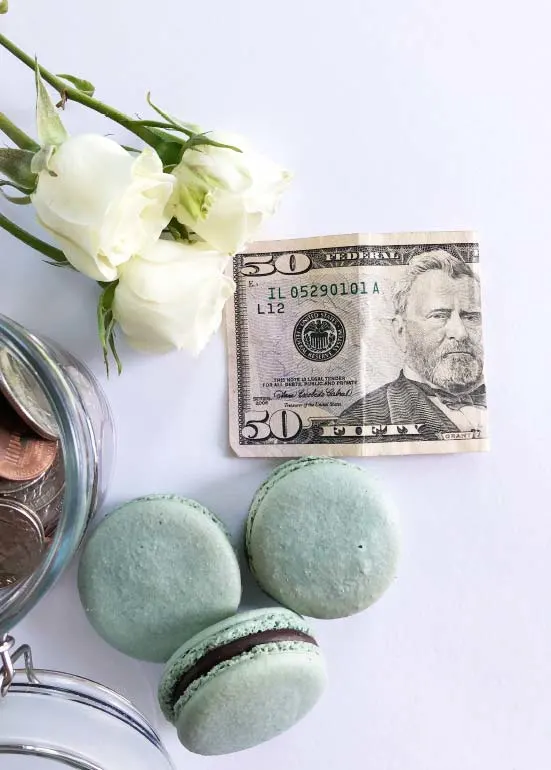
This post may contain affiliate links. For more info, see my disclosures.
Personal finance is personal
Follow these steps and they will work for you. However, personal finance is personal. Every situation is unique and you’ll find some of these techniques will work better than others.
Just keep doing what works for you.
Here’s the other thing about getting out of debt: it’s just a little knowledge, but a lot of effort. Our actions and misfortunes that led us into debt didn’t happen overnight, and it takes time to pay off debt. It’s a marathon, not a sprint!
Ready to get started? Let’s do this!
How to get out of debt: your step-by-step guide
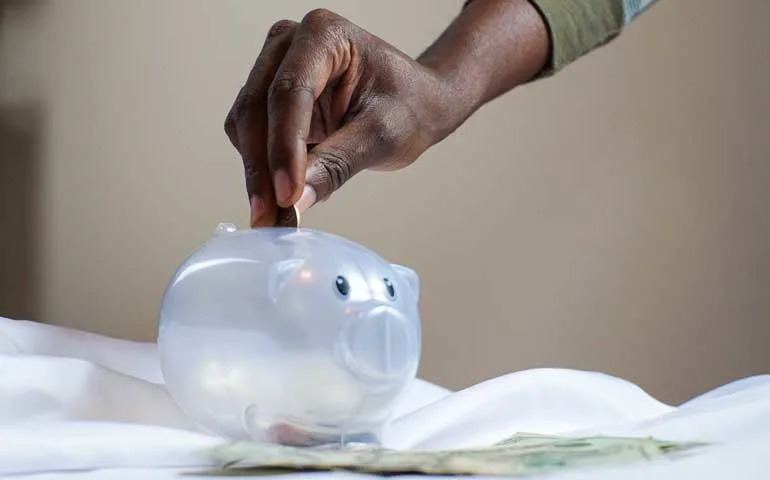
Get rid of debt forever. Sounds awesome, right?
Let’s do this!!
1. Know your numbers
Guysssss – this is critical! You absolutely need to know your numbers! All of them. Get to know your accounts intimately. You bank account, credit cards, Venmo – whatever you use.
If you’ve never been a detailed person, now is the time. Because when you’re trying to get out of debt, it all matters.
2. Tally up what you owe
Get out a pen and paper, Excel document, notes page on your phone – whatever. Write it all down. Everything from credit cards, medical bills, student loans, car loans, anything in collections – literally anything you owe anyone.
Don’t worry about organizing it from largest to smallest, by interest rate or whatever. We’ll get to that later.
3. Know exactly how much you earn and spend
This one’s a big one! In order to pay down debt you need to know how much money you have. Down to the dollar. Get your paycheck stubs and bank statements out for the last month.
List these items:
- Income from your job, tips, side hustles, etc.
- Bonuses, IOU’s or other financial windfalls
- Interest or dividends, if any
- Total amount you spent last month across all your accounts – bank, credit cards, money apps, etc.
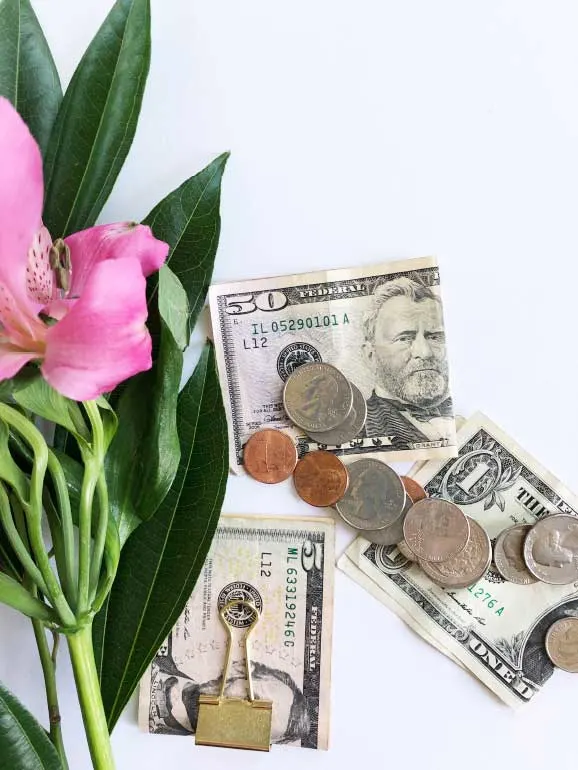
4. Own it
With just these simple exercises above, you should see if you have a deficit or surplus of money going in and out. And either way, it’s okay.
The past is the past and the decisions and life’s events have led you to this point. Now you’re focused on becoming debt free.
So clear your head about any past mistakes or issues and start thinking about being debt free. Managing your money well has as much to do with mindset as it does action.
Yes, you heard that right. The first thing is believing that you can get out of debt. Then there’s the steps to make it happen. We’ll get to that in a bit.
5. Know your ‘why’
Are you motivated to get out of debt so you can take fantastic vacations? Or maybe you want to get rid of all your monthly payments to start saving for a home. Perhaps you want to get your finances in order to retire early. Or maybe it’s just the stress of it all – you’re ready for a better financial situation to feel more free.
Whatever your reasons for getting out of debt, you need to be crystal clear about your why.
Because getting rid of debt is a journey, and not one that’s often easy. So remembering your why will be important when you’re in the thick of paying off debt.
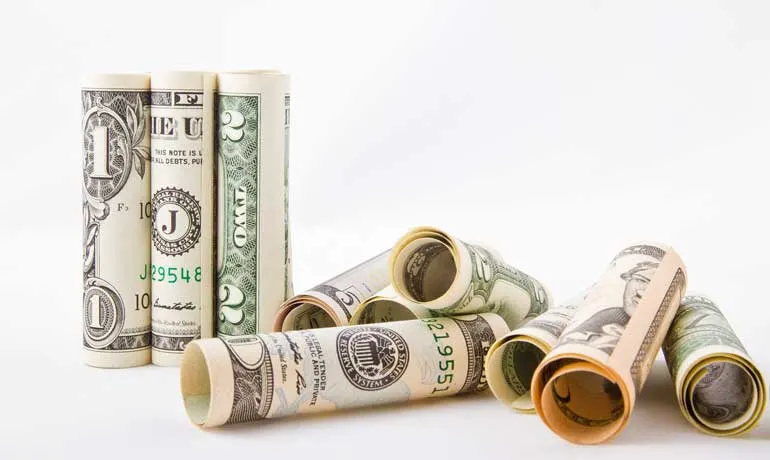
6. Stop making more debt
This next part is easy and can be done real quick. Ready?
It’s simple, in theory. If you want to know how to get out of debt, the first step is to stop creating more of it. In other words, spend less than you make.
Depending on your situation, you may have some work to do to flip the money equation.
But in this step you’re committing to yourself to work at this. Make the promise TODAY – right now, that you’ll do everything in your power pay down your debt, and stop making new.
Easy peasy? Okay then. Let’s move on!
7. Commit to put extra money towards debt
While we’re at it, let’s go ahead and commit to putting extra money towards it. I’m not saying every single penny and live a miserable life.
But I am saying that committing right now to yourself and your debt is a great step in the right direction. Remember – you’re worthy of getting out of debt. Show yourself that by making a commitment. TODAY.
Debt payoff guide – that “B”
If you’re wondering how to get rid of debt fast, here it is…
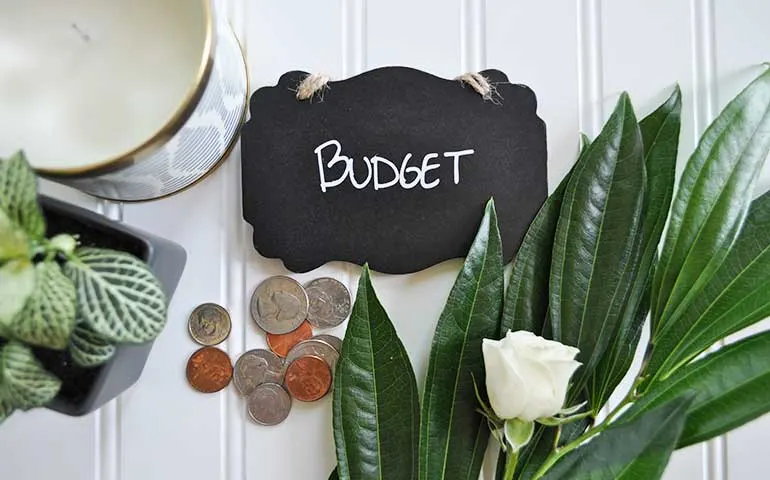
8. Create a plan for your money
In other words, create a BUDGET! Your stomach may have turned when you heard budget. It may sound boring or tedious or maybe you’re hesitant based on past budget attempts.
Budget = a plan for your money
It’s honestly what will get you there.
Budgets work. It’s literally just a plan for your money. If you’re hesitant, just know that budgeting = freedom to do what you want with your money. Especially as you start paying things down, that freedom only grows larger!
9. Work the budget
Since this is a debt payoff guide, I’ll refer you to this article about how to create a budget. Here’s the fast version:
- Total up your income (you just did this exercise, above)
- Add up all your bills (expenses that stay the same each month)
- Rent/mortgage
- Utilities
- Insurance
- Cell phone
- Etc.
- Then add minimum debt payments
- Total up all your variable expenses
- Groceries and dining out
- Entertainment
- Shopping
- Travel
- Etc.
Give every single dollar you earn a job as you earn it. Divvy out your money to all your categories.
This process includes being intentional with your money at the beginning of the month (or pay cycle). It’s your spending plan for the month.
Any extra you’ll use to pay towards debt. Refer to the budgeting guides above for details.
10. Align your money with your values
Real quick, let’s determine what matters most to you. Because often times when we overspend, it’s buying in excess (shopping), convenience (eating out) or things that are immediately satisfying but long-term don’t really matter.
If you align your spending with your values, you immediately know where you should spend the bulk of your money. And while during this debt payoff phase things may look different, it’s still important to recognize those values.
How to get out of debt fast: you gotta work for it
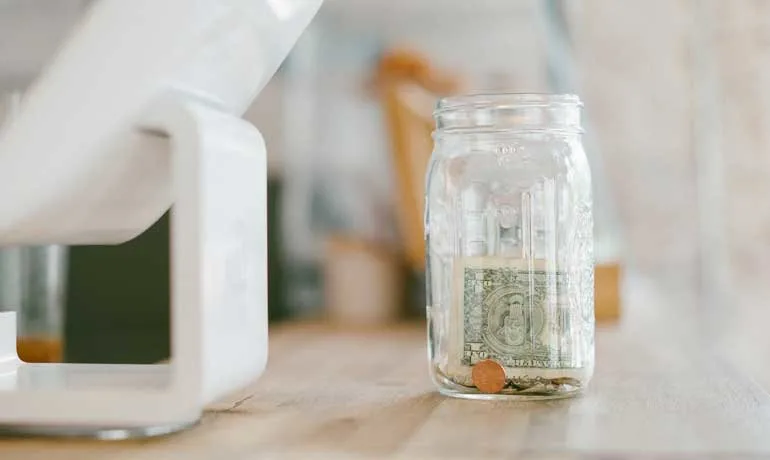
So next it’s time to get down to it. Let’s get focused……
11. Track your spending
Okay so remember when we talked about your spending plan for the month? AKA your budget?
Now it’s time to track your money and make sure you’re staying on budget. You can choose to track your money daily, every few days or weekly. I’ve seen the most success in budgeting and debt payoff by tracking your money weekly.
That means you’ll go through your budget (i.e. your intentions for your money) and spend accordingly.
So for instance, if the first 2 weeks of the month you spend $400 of your $500 grocery budget, then you know you’re going to have to get scrappy on the last 2 weeks. Eat food from your pantry or freezer, eat random meals vs. what sounds good, and buy as little as possible from the store.
The point is to check in frequently with your budget so you don’t overspend. And if you realize you forgot to budget for an item or event or something comes up (because life does!) then you’ll just cover it with funds from another category.
But not creating new debt – remember the commitment to yourself?
12. Create an emergency fund
Life happens. Emergencies happen. And often times those emergencies are what leads us to racking up debt. You’re going to prevent this by putting any excess money you may have at the end of the month into an emergency fund.
(If you don’t have excess, we’ll get to that in a bit, too.)
And yes, you do this BEFORE you pay off debt.
Here’s a full guide on how to build an emergency fund.
Basically I recommend these 3 things to my clients for emergency funds:
- Open a separate account away from your regular bank
- Make savings automatic so it adds up faster
- Small, frequent deposits ensure the best success
But how much should you have in an emergency fund while still paying off debt?
Your emergency fund is a comfortable amount for you. Some say that a $1000 emergency fund is good. Well many people saw when ‘rona hit, that simply wasn’t enough.
So whether it’s $500 or $5,000, create an account with the bare minimum amount in there that you’re comfortable with. Remember the focus right now is debt. Once you have a handle on it, you can re-focus on building an emergency fund.
13. Put everything you have towards debt
Every dollar matters! Put them all towards your payments!
I remember back when my husband and I were in our debt payoff phase. We had over $100,000 in debt so it was no small task. Yet, if we had $12 in our bank account when our next paycheck was deposited, we’d make a $12 transfer to a creditor.
Of if we got a $100 Christmas bonus, it would go towards debt.
These days I have clients that…
- Cancel cable and move that monthly spend to paying things off
- Sell their car (move to a 1-car family) to pay off debt
- Kick the daily wine habit and just enjoy it on the weekends to contribute more money to the bigger goal
The point is, every extra dollar you have can go towards your payments.
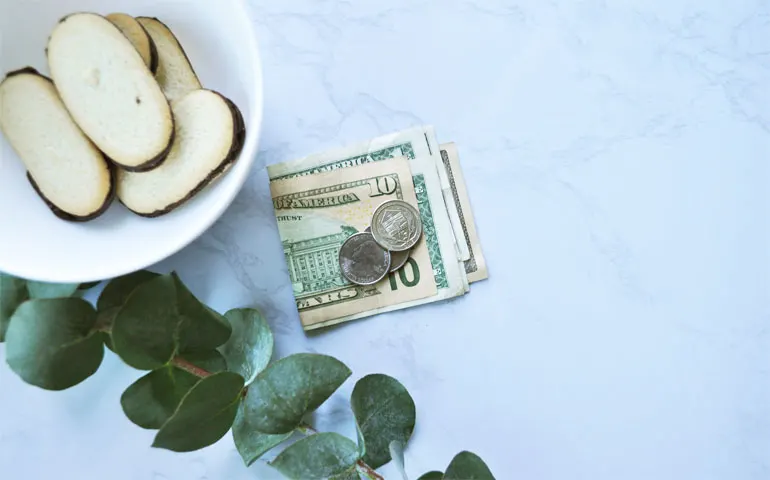
14. Make more money
If you’re looking for debt advice, it’s this simple… there’s 2 main ways to get the funds to put towards debt: spend less or make more.
If you don’t typically have anything leftover at the end of the month and have nothing more to cut from your budget, then you need more income.
I understand this is easier said than done. But this critical step will help you determine how to get rid of debt fast.
First and foremost, ask for more money from your employer if you work hard and produce results. Think about how much 5%, 10% or 15% more could help with your payments!
Tips for getting a raise at work:
- Demonstrate your value
- Be firm with your number or percentage (not a range)
- Do market research to support your ask
- Don’t mention personal reasons
During your conversations, it’s important to not mention how this could benefit you financially – their decision to give you a raise would be based on what your employer gets out of you. And to retain you.
Don’t make threats about leaving if you don’t get what you ask for – unless you really mean it!
15. Start a side hustle
Did you know that 34% of Americans have a side hustle? (According to Zapier) With a ton of options online or in your community, it’s easier than ever to earn some extra cash.
Here are just a few side hustle ideas:
- Walk dogs
- Cut lawns
- Freelance writing
- Start a consulting business
- Tudor students
- Drive for an on-demand delivery service like Uber Eats, Instacart or Grubhub
- Become a freelance photographer
If you’re wondering how to get out of debt, the answer very well might be to bring in more cash! Choosing to make more money will speed up your debt payoff. And remember, the extra work doesn’t have to be forever.
16. Sell some stuff
Look around your place. Do you have anything you’re not using that someone else would be willing to pay you for? Selling extra things on Facebook Marketplace, eBay, ThreadUP or Mercari are great ways to bring in extra cash.
It’s time to part with what you no longer need. Remember your why and determine if it’s greater than that old stuff lying around.
Whether it’s $50 or $500, it all matters!
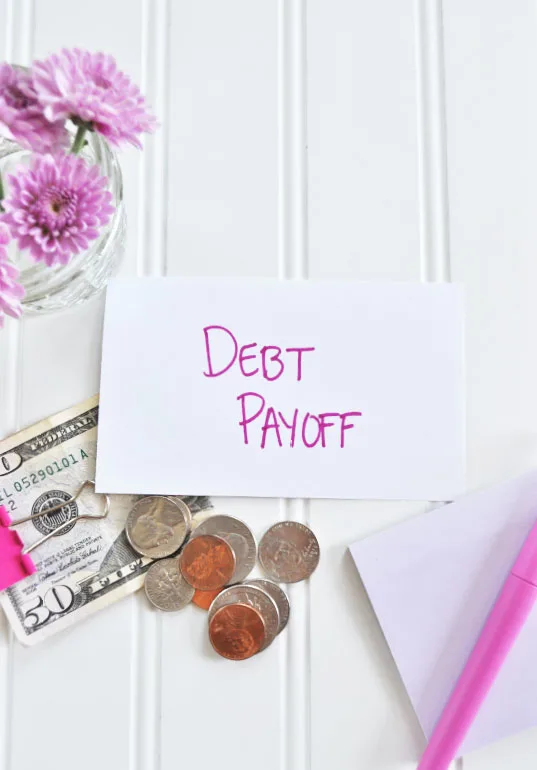
How to get out of debt – actually making the payments
If you’re asking yourself “yeah, this sounds nice but what do I do first?” Well, I got you! The next part in the process is deciding what to pay off, how often, etc.
17. Determine which debt to pay first
When determining which debt to pay off first, you have 2 choices:
- Smallest balance
- Debt with the highest interest rate
Generally paying the smallest debt first is recommended, because paying off items quickly provides momentum for your journey.
But listen, this decision is personal. If you have really high interest debt that just irritates you, then maybe you choose to pay that down first.
The key here is this: focus on one debt at a time. Get it paid off in full before paying extra on others.
You’ll make progress faster that way.
18. Make smaller payments more often
Don’t wait until the end of the month or paycheck cycle to see what’s left. Instead, throw money at debt early and often.
So as soon as your paycheck gets deposited and your budget (i.e. your money plan) is created, make a payment towards debt. Then, make small payments throughout the week or month. $10 here, $20 there.
Let’s say you have $200 budgeted for the week in groceries and you spend $181. Instead of letting the extra $19 sit in your account (or go to something else), make a $19 payment to debt.
It all adds up!
19. Rollover your extra payments (your debt snowball)
Once you pay something off, first of all, you should celebrate because this is a BIG DEAL. I’m not recommending to spend a ton of money on this celebration. I’m talking about going out for ice cream, having a glass of wine or something small.
Then start taking the money you were putting towards that balance and roll it into the next debt payoff. So if you were paying $200 every month to get the first debt paid off and your minimum on the next largest is $40, now pay $240 towards the 2nd debt on your list.
As you pay off more and more debts, those payments will get larger and larger, and that’s the key to getting out of debt fast.
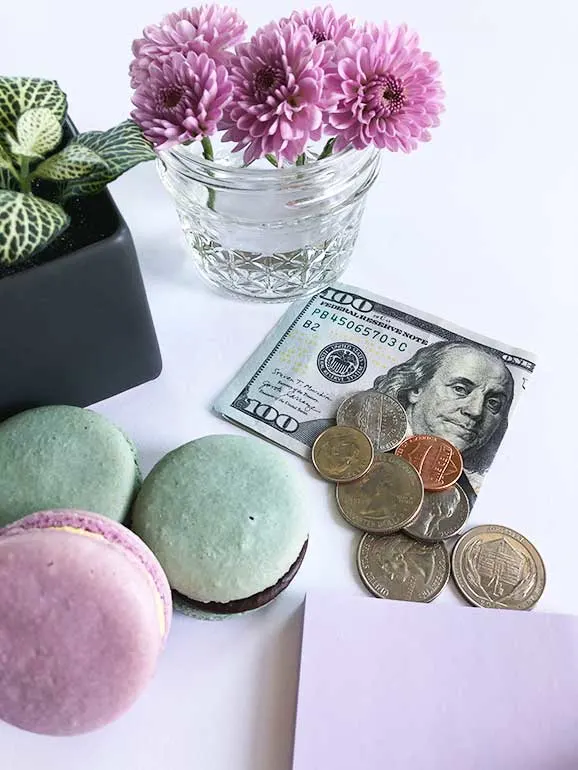
20. Ask for a lower interest rate
While you’re focusing on how to get rid of debt and making payments, you can try asking your creditors for lower interest rates. Try calling your credit card or bank use these talking points:
- You’re a loyal customer with a good payment history (if you’ve been consistent)
- Ask what options they have for a lower interest rate
- If they mention refinancing to get a lower rate, make sure they’re not extending the term of the loan
Be extra polite and accommodating. You’re not interested in opening up anything new at this time, just asking about reducing the current interest rate.
Sometimes it’s worth calling the creditor multiple times to see if you can get a different person if the first contact doesn’t work. Sometimes credit card companies will offer a statement credit instead of a rate reduction. Take it!
But ultimately don’t stress if they’re not offering anything. You’ll be out of debt and rid of them soon anyway. 🙂
21. Refinance your high interest debt
So many people get further into debt by continuing to consolidate over and over until the payments get out of hand. I’m not recommending this lightly.
What I am saying is that if you have a solid debt payoff plan in place, and refinancing will save you some money on debts you won’t be able to touch for a while, then it’s worth trying.
So for instance, let’s say you have 9 items on your list to pay off. And based on the total debt, you know you won’t be able to get to items 7, 8 and 9 for a while (a year, for instance). You could consider consolidating them to a lower interest to keep the payments lower for now while you continue to work on paying off other debts.
Please use this method with caution! Don’t consolidate with high transfer fees or closing costs. And whatever you do, don’t consolidate debt and continue to spend more than you earn. Stick to your plan!
Keep your eye on the prize (a key to how to get out of debt)
It’s the final stretch of this debt-free guide. You just gotta keep going.
22. Determine your timeline
Using a timeline based on your budget, create your debt repayment plan. You want to know when the finish line is. And only you have the power to change that!
So figuring out how much money you can throw at debt using your budget, bringing in extra income through your job and selling items or working a side hustle is the key.
Let’s say you have $5000 that you owe. And you’re able to throw $500 per month towards it. That means in roughly 10 months you’ll be out of debt. Of course extra interest will accrue but you might also find more savings to throw at it!
Now let’s say you have $20,000 in debt and can pay $250 every month towards it. You’ll have at least 80 months of payments before you’re debt free. (Also note that if you can find or make an extra $100 to make it $350, you’ll shave off almost 2 years from your timeline!)
The point is, create your debt free timeline. Because it can sometimes feel impossible and discouraging. But if you can keep your eye on the prize, you’ll feel better knowing what you’re working towards.
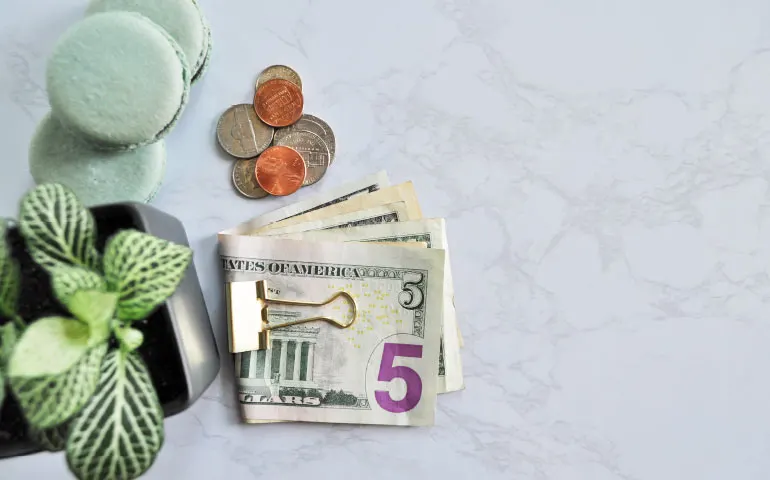
23. Decide what you’ll sacrifice
I know sacrifice is a strong word, but the more serious your are about becoming debt free, the faster it’s done and you can move on with your life – without financial stress. Listen, I’m not saying life should be boring and you have to suffer until everything is paid off.
Because life is all about balance.
My husband and I continued to travel while we paid off over $100,000 in debt, and I have no regrets. Tomorrow is promised to no one.
But if you really want to live without financial stress, please consider your budget, lifestyle and hopes for the future. What are you willing to give up – temporarily – to make this happen?
Consider sacrificing these things during your debt payoff plan:
- Lavish vacations
- Frequent eating out
- Unnecessary shopping
- Having the latest tech and gadgets
- Upgrading your vehicle
Money is a tool for our lives. Use it now to pay off your debt and have a little fun. And when everything is paid off, you’ll have total freedom to do exactly what you want with your money.
24. Ignore social pressures
While you’re getting out of debt, you’ll likely come across people that won’t understand or support you.
And that’s okay. This is your goal and your life. It’s okay for your life not to look like someone else’s – it shouldn’t! These are your decisions and your money.
Secondly, you may feel pressure or jealous of others spending money. Extravagant vacations, nice cars, big TV’s – whatever. But here’s the thing: you don’t know their bank account. Or how much debt they have. They may be living under the stress of debt and simply not show it.
Keep moving forward. When it’s done, that sense of freedom is way more powerful than social pressures now.
25. Stay motivated to pay off debt
Okay, this might be the most important part of this entire guide. Because becoming debt free is no joke! Debt can feel extremely daunting, and if you’ve got a lot of it there are days where it seems like no end is in sight.
I paid off over $100k in consumer debt – so I know first-hand that it’s overwhelming.
Here are some tips to stay motivated during your debt payoff:
- Break down your debt into bite-size pieces and focus on just the next debt. Keep your eye on that one until it’s done then move onto the next.
- Celebrate your wins. Whether you celebrate every $100, $500, $1k, or every time a creditor is paid off. You worked hard so have a dance party in your kitchen, plan a movie night, crack that bottle open – whatever it is….just keep it small, okay?
- Find an accountability partner. Whether it’s your spouse or partner, friend, mom, financial coach – whoever. Talk to them about your goals and keep them updated on your progress. Ask them to celebrate with you and hold you accountable.
- Remember your why. Every time you feel like giving up just remember why you decided to get out of debt in the first place!

26. Create a money vision board
To create more momentum, make your goals more visual. Visualization is a powerful tool in achieving any goal. Creating a money vision board and looking at it everyday will help motivate you to take the actions necessary to get out of debt.
Whether it’s in paper format hanging up on a wall, a screensaver on your phone or your laptop background, a debt-free vision board is super helpful!
Consider creating a vision board using these prompts:
- What does being debt free look like to you?
- Where will you live?
- What will you wear? Drive? Do for entertainment?
- How will your happiness improve without financial stress?
- Where will you vacation?
- How will you be able to give back to others?
Create a collage of what being debt-free looks like to you. Then look at it every day and keep it top of mind, especially when you’re feeling discouraged.
27. Get a financial coach
Seriously though.
It’s the same principal as getting a fitness coach if you want to lose weight or get in shape. With a trained coach and accountability partner, you’ll make more progress than you will alone.
How to get out of debt – a recap!
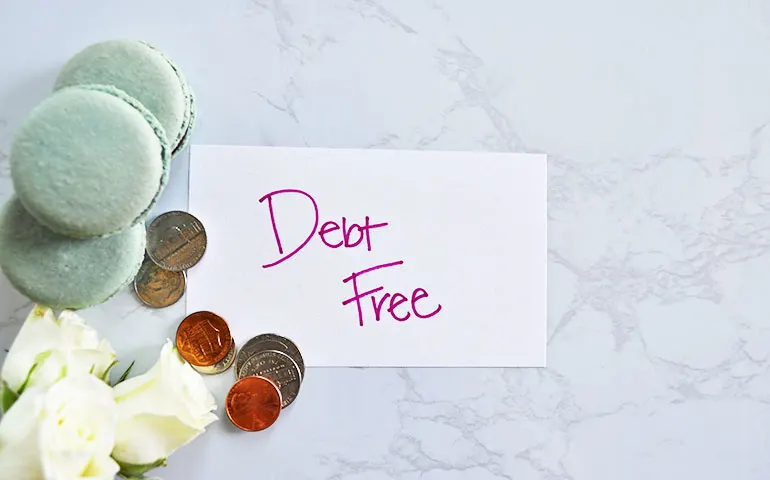
There it is. A proven plan to eliminate debt, reduce your stress and get your sanity back. It’s time to make debt a thing of the past and start living your best life!
How to get out of debt in 27 steps:
- Know your numbers
- Tally up all your debts
- Know exactly how much you spend and earn
- Own it
- Know your ‘why’
- Stop making more debt
- Commit to put extra money towards debt
- Create a plan for your money
- Work the budget
- Align your money with your values
- Track your spending
- Create an emergency fund
- Put everything you have towards debt
- Make more money
- Start a side hustle
- Sell some stuff
- Determine which debt to pay first
- Make smaller payments more often
- Rollover your extra payments (your debt snowball)
- Ask for a lower interest rate
- Refinance your high interest debt
- Determine your timeline
- Decide what you’ll sacrifice
- Ignore social pressures
- Stay motivated to pay off debt
- Create a money vision board
- Get a financial coach
These steps will take you from stressed with money to financial freedom. Create a plan and stick to it!
You got this!!
Want to learn more about managing your money? Here’s more:
20 Budgeting Skills You Need to Crush Your Money Goals
How to Save $1000 in 30 Days or Less
Find this post helpful? Save it for later or share it on social media!
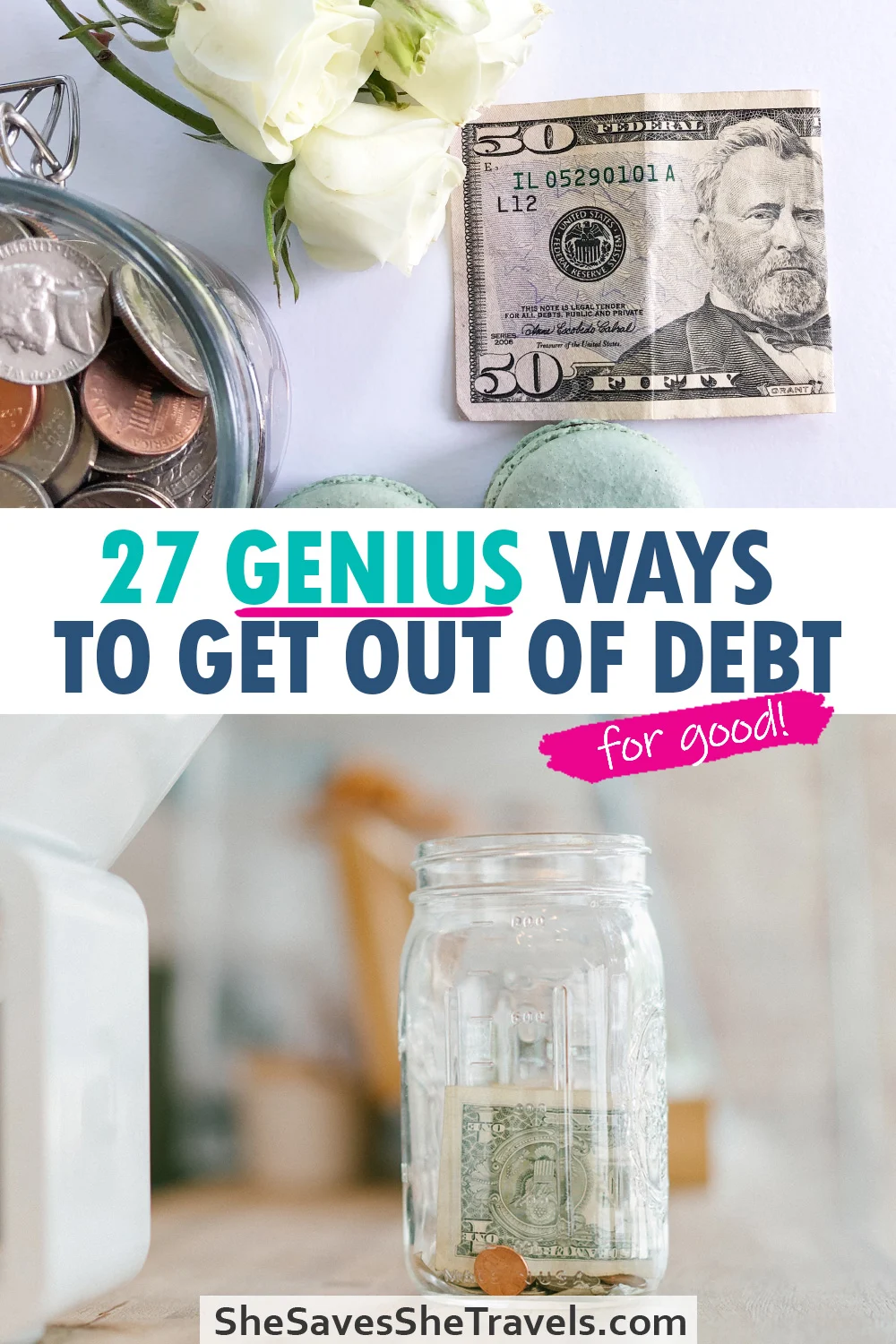

Holly VonWald
Saturday 10th of April 2021
My husband and I have some sizable goals ahead of us, so we've been working on plowing down our debt first. It'll still take us some time, but we are confident we're on the right track. When we buy a house, we want to be as close to debt-free as possible. Your tips in this article are valuable!
Nikki
Sunday 11th of April 2021
Love how motivated you guys are! Keep fighting for your dreams! :)
Sonja J.
Friday 9th of April 2021
Thank you so much for sharing your advice. My hubby and I have been slowly chipping away at our debt for the past several years. It's been (at times) slow-going and I will admit to getting frustrated on more than one occasion. One of our main struggles is building an "emergency fund." Your recommendation to make smaller, more frequent deposits to build savings was an "AH HA!" moment.
Nikki
Sunday 11th of April 2021
Oh awesome Sonja! I'm so glad to hear this guide was helpful. Best of luck to you in your debt free journey. :)
Valerie
Friday 9th of April 2021
This is my goal. I know the numbers and have the desire to be debt-free, so I have to apply the actions. You've inspired me to take action. Thanks for a great post
Nikki
Friday 9th of April 2021
Yay Valerie! Love that you're working towards this goals and are inspired to get it done! I'm cheering you on!
Vicki
Thursday 8th of April 2021
Absolutely loving your blog Nikki. The intersection of money and travel - music to my ears! I also love how practical these tips are. I have been trying to do more planning for my money goals lately and I've seen great results. I am 100% behind you, especially on the financial planning bit.
Nikki
Thursday 8th of April 2021
Very cool, Vicki! Thanks for the compliments too. Finances is baby steps - one foot in front of the other! Biggest part is believing you can, then taking action to make it happen. Thanks for stopping by the blog today. :)
Cassie Williams
Thursday 8th of April 2021
This is wonderful information. I know that I will be using some of the ones I did not think of.
Nikki
Thursday 8th of April 2021
I'm so glad to hear this guide is helpful to you! Best of luck on your debt-free journey!